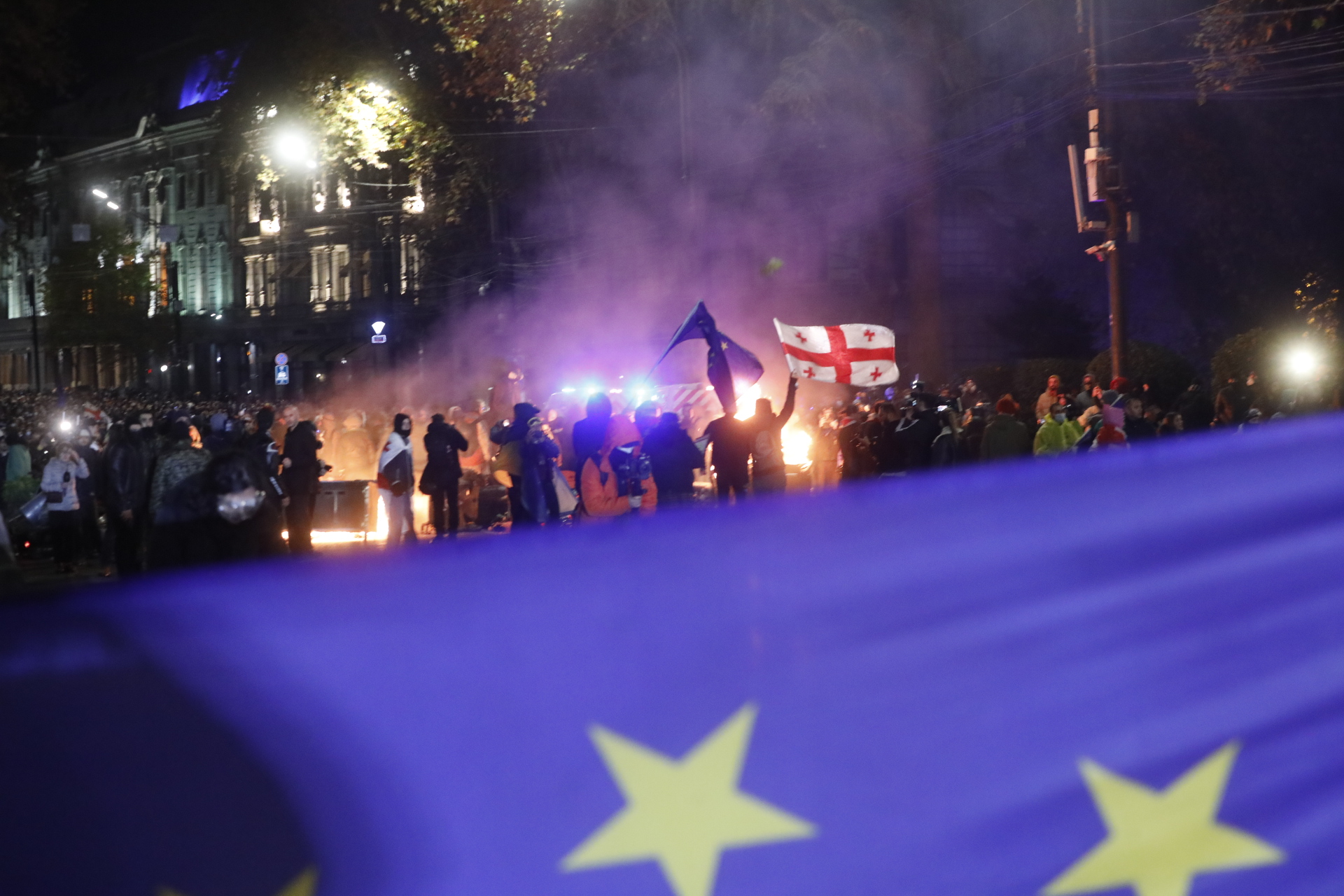
Police clashed with protesters in the Georgian capital late Thursday as thousands gathered outside parliament to demonstrate against Prime Minister Irakli Kobakhidze's controversial decision to suspend European Union accession talks until 2028.
The confrontation escalated when demonstrators attempted to breach steel barriers protecting the parliament's main entrance, prompting security forces to respond with water cannons and tear gas. Protesters retaliated by throwing various objects at police lines before retreating to Shota Rustaveli Avenue, where they erected barricades and blocked traffic.
The demonstrations erupted following Kobakhidze's November 28 announcement that Georgia would postpone EU membership negotiations and reject all EU budget grants through 2028, a move that has deepened the political crisis in this Caucasus nation of 3.7 million people.
"We will not enter the European Union by begging or standing on one leg," Kobakhidze declared in his announcement. "We will join the EU with dignity, with a proper democratic system and a strong economy."
The prime minister's decision comes amid heightened tensions between Tbilisi and Brussels. Kobakhidze accused European politicians of interfering in Georgia's internal affairs, claiming the European Parliament had adopted "five resolutions full of lies and insults" against Georgia over the past three years.
The political turbulence follows Georgia's contested parliamentary elections on October 26, where the ruling Georgian Dream Party secured victory with 53.93% of the vote. Opposition parties and President Salome Zurabishvili have refused to recognize the results, alleging electoral fraud. Zurabishvili filed a constitutional court challenge to the election results on November 19.
The European Parliament recently condemned the October elections, citing "serious irregularities," and called for new elections within a year under international supervision. EU lawmakers also urged sanctions against high-ranking Georgian officials, including Kobakhidze, for "undermining democratic standards."
Georgia's path to EU membership has been rocky since its application in March 2022. While the country received candidate status in December 2023, the accession process was suspended in July following the implementation of a controversial "foreign influence transparency" law.
According to local media reports, several protesters have been detained as confrontations continue along Shota Rustaveli Avenue, marking another turbulent chapter in Georgia's complex relationship with European integration.